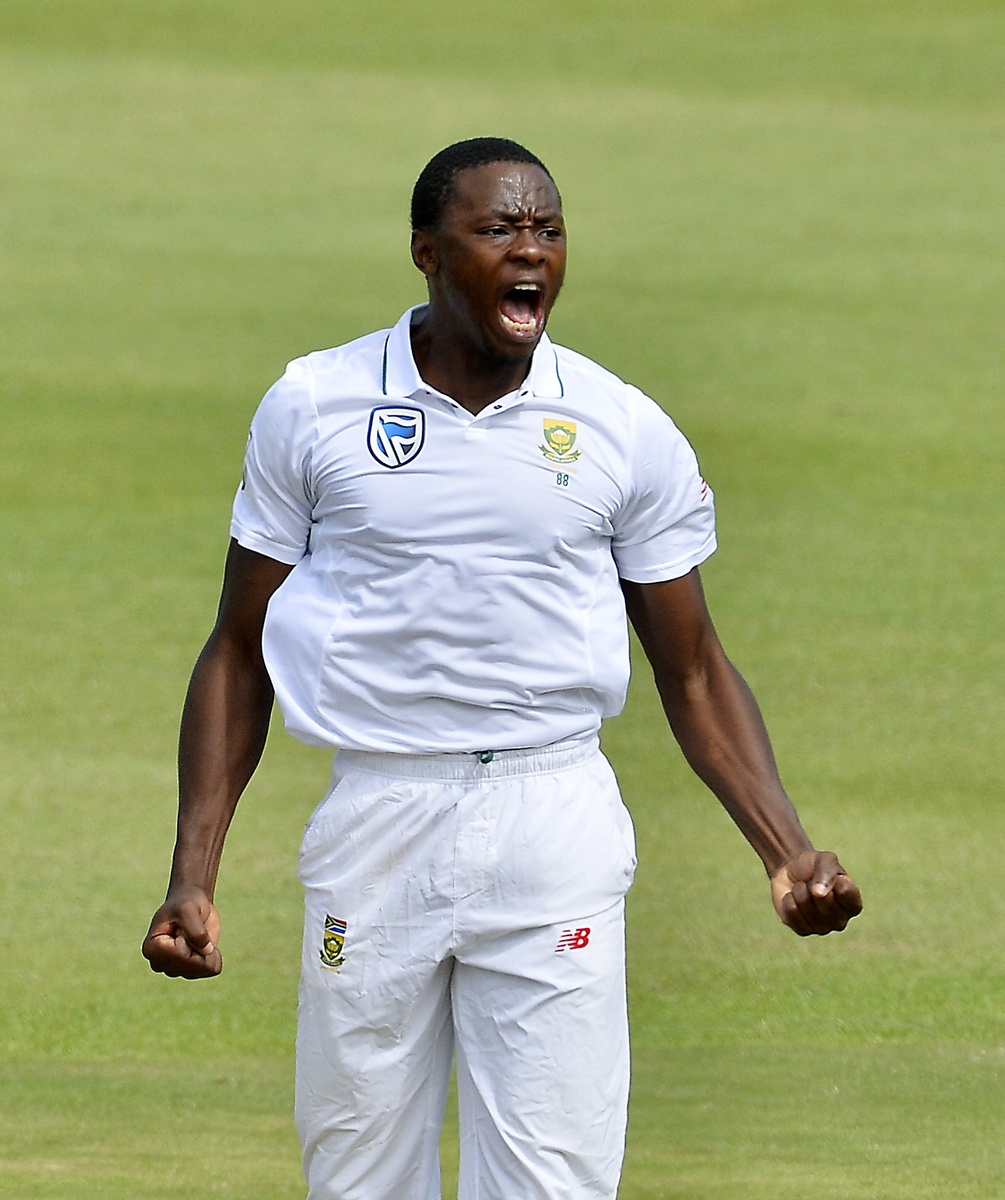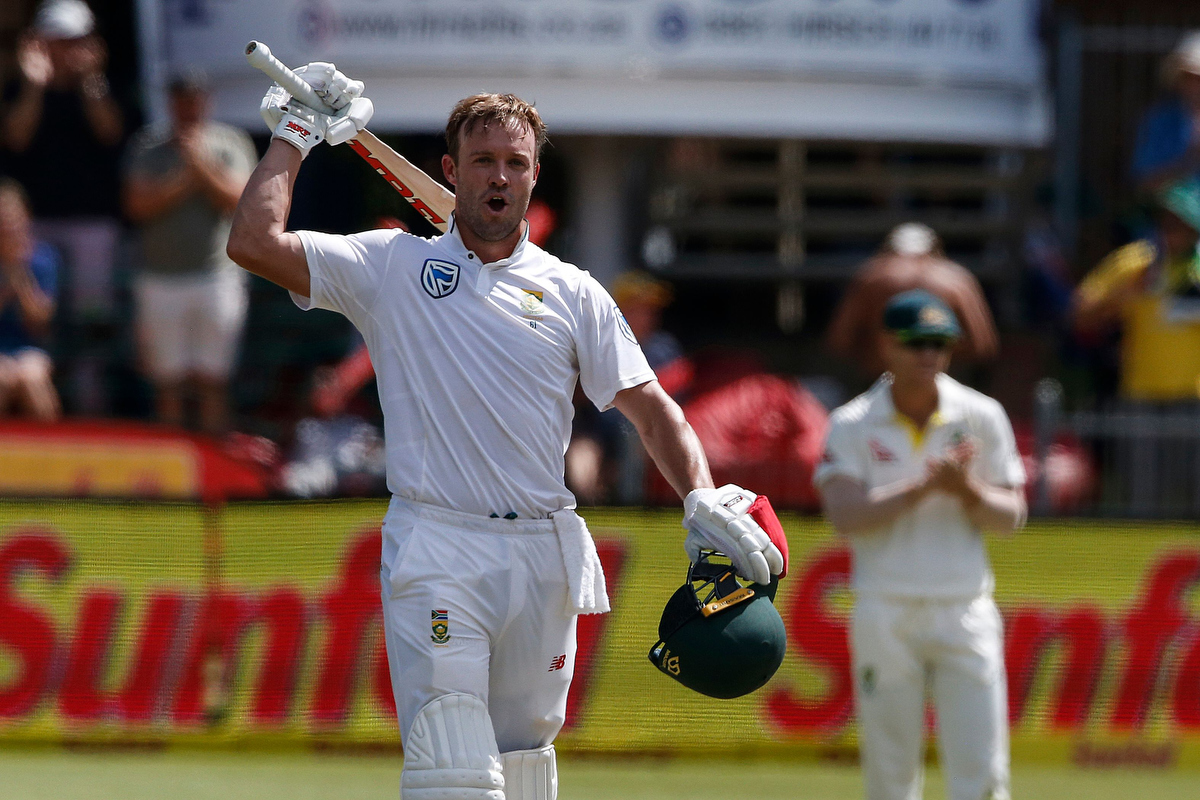SOUTH AFRICA’S fast-bowling future has come sharply into focus on day one of the second Test – but they’ve got a problem with their new Number One man, writes RON REED:
KAGISO Rabada is just 22 and already officially the second-best fast bowler in the world. Lungi Ngidi will turn 22 later this month and has no such claims to fame – yet. But stand by, because all the evidence from the first day of the Second Test at Port Elizabeth suggests South Africa might just have unearthed that most valuable of all cricket commodities, a pair of fast bowlers capable of wreaking havoc in tandem for at least another decade.
Together with the far more seasoned Vernon Philander they bowled Australia out for a below-par 243, Rabada taking 5-96, Ngidi 3-51 and Philander 2-25. It will not be lost on anybody in South Africa that all three are black. It is the first time the Proteas have fielded an all non-white pace attack since their reinstatement to world cricket at the end of the apartheid era more than two decades ago – or in other words, ever.
That makes it a very significant day in the context of South African sport, especially as the trio have come together on merit and not because of the controversial quota system that has intruded on selection processes in the past. It owes something to the fact that the great Dale Steyn is injured but Ngidi, for his third Test, has been chosen ahead of Morne Morkel, who has been dropped three matches before he plans to retire anyway.

Before and after their banishment, South Africa has always fielded strong pace attacks. In the modern era, they have always included one or more of Allan Donald, Steyn, Shaun Pollock, Morkel and fast-medium all-rounder Jacques Kallis – until now. The only black paceman to make a comparable impact in this period was the great Makhaya Ntini, who took 390 Test wickets, which places him third on South Africa’s all-time list behind Pollock, 421, and Steyn, 419, and ahead of Donald, 330, Morkel, 297 and Kallis 291. Then follow two spinners, Hugh Tayfield, 170, from the old era and Paul Adams, 134, from the new, with Rabada already in 10th place with 129 midway through his 28th match – and with a bullet.
With the highly-talented Philander well on the wrong side of 30 – he turns 33 in June – Rabada and Ngidi are the faces of the future for their country. Well, Ngidi is. Rabada is a star in the here and now, having taken more Test wickets, 57 at the very good average of 20.28, than any other pace bowler in the world last year, with Australian spinner Nathan Lyon’s 63 the only bigger tally. The ICC rankings now have him placed second behind only English veteran James Anderson, with his current performance likely to bridge what is a very narrow gap.
The only problem – and it’s a big one – is his inability to rein in his combative aggression, which has already seen him suspended for one Test, in England last year, and is now threatening to sideline him for the rest of this series, which would be a massive blow for his team. Rabada has five demerit points hanging over his head – the latest one acquired only a fortnight ago for an ugly send-off to Indian batsman Shikar Dhawan – and if he gets to eight, he will face a two-match ban. The rest of the series, in other words.
He put himself at distinct risk of that when he gave Australian captain Steve Smith an animated gobful after dismissing him lbw and then brushing shoulders as Smith walked away. It was unwisely provocative, especially in the current climate where behaviour is firmly under the microscope. It prompted commentator and legendary West Indies quick Michael Holding to scratch his head in dismay. “When people behave like that you just wonder why, why is that necessary,” he said. “When you’re young you make mistakes, but you don’t keep on making the same mistakes.”
Before the match, Steyn, claimed that Rabada had calmed down because of the disciplinary sword hanging over his head. “He really does get stuck in,” Steyn said. “But I think after some of his last few incidents where he got into trouble he kind of has the handcuffs around him right now, which is a little bit unfair because if you look at the way some of the Aussies are going about it – and I’m not standing here complaining and I hope I don’t get a fine for saying that – but you kind of feel you are taking out our best competitor, especially with that kind of presence. If you take him out of the game, it’s like taking a knife to a gunfight, really. It’s a little bit unfair.”
Rabada, whose father is a doctor and mother a lawyer, has been a star from the start, winning South Africa’s cricketer of the year award at the age of 20, having made his Test debut against India in November, 2015, and touring Australia a year later, where he impressed with figures of 5-92 in Perth and 4-34 in Hobart. He has now taken five wickets or more in an innings eight times, or about once every three matches, which is a very handy statistic.
In the current match, he took time to find his mojo but when he did, in the latter part of the second session, the results were spectacular as he took 5-13 in 18 balls, dismissing Smith, both Marsh brothers, Pat Cummins and Mitchell Starc to put the tourists under immense pressure – and leaving match referee Jeff Crowe with some extremely weighty thinking to do.
RON REED has spent more than 50 years as a sportswriter or sports editor, mainly at The Herald and Herald Sun. He has covered just about every sport at local, national and international level, including multiple assignments at the Olympic and Commonwealth games, cricket tours, the Tour de France, America’s Cup yachting, tennis and golf majors and world title fights.



Discussion about this post